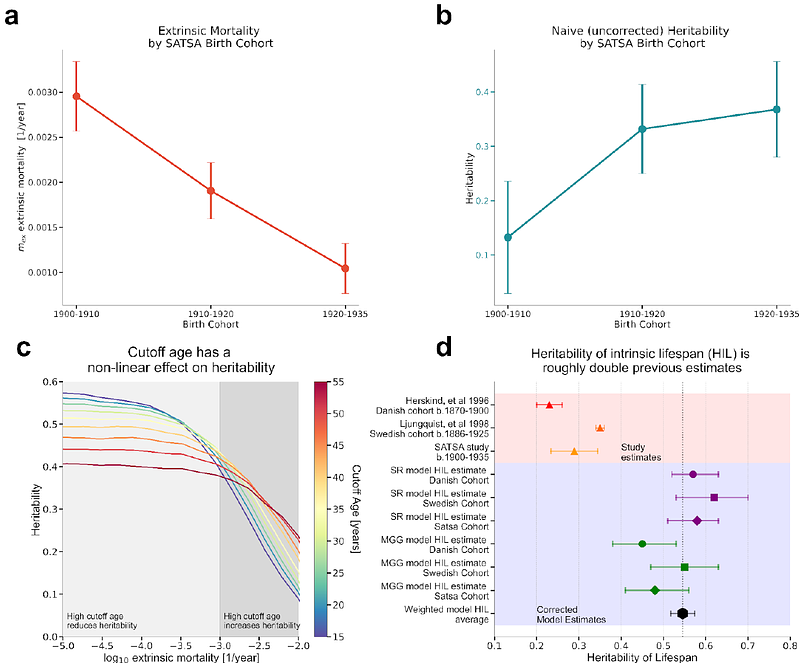Heritability of human lifespan is about 50% when confounding factors are addressed

Heritability of human lifespan is about 50% when confounding factors are addressed
Shenhar, B.; Pridham, G.; de Oliveira, T. L.; Yang, Y.; Raz, N.; Deelen, J.; Hagg, S.; Alon, U.
AbstractHow genetic is human lifespan? Twin studies suggest genes explain 20-25% of lifespan variation, while some pedigree studies put it as low as 7% .However, these estimates do not distinguish between intrinsic and extrinsic mortality. We model genetic variation within two well-established mortality frameworks - the Saturating-Removal (SR) model and the Makeham-Gamma-Gompertz (MGG) model - and calibrate them using historical twin datasets from Sweden, Denmark, and the SATSA study - to show that extrinsic mortality underestimates heritability estimates by driving down measured lifespan correlations among twin pairs. In the SATSA cohort, heritability climbs across birth cohorts as extrinsic mortality falls, supporting our prediction. Computationally excluding extrinsic deaths and analysing survival from age 15 gives a broad-sense heritability of 0.54 -- on par with that of most complex traits. We thus challenge the consensus that genetics has only a minor effect on lifespan, showing that genetic variation explains about half of human lifespan differences. Our results support renewed efforts to uncover the molecular and genetic mechanisms of aging and translate them into clinical benefits.